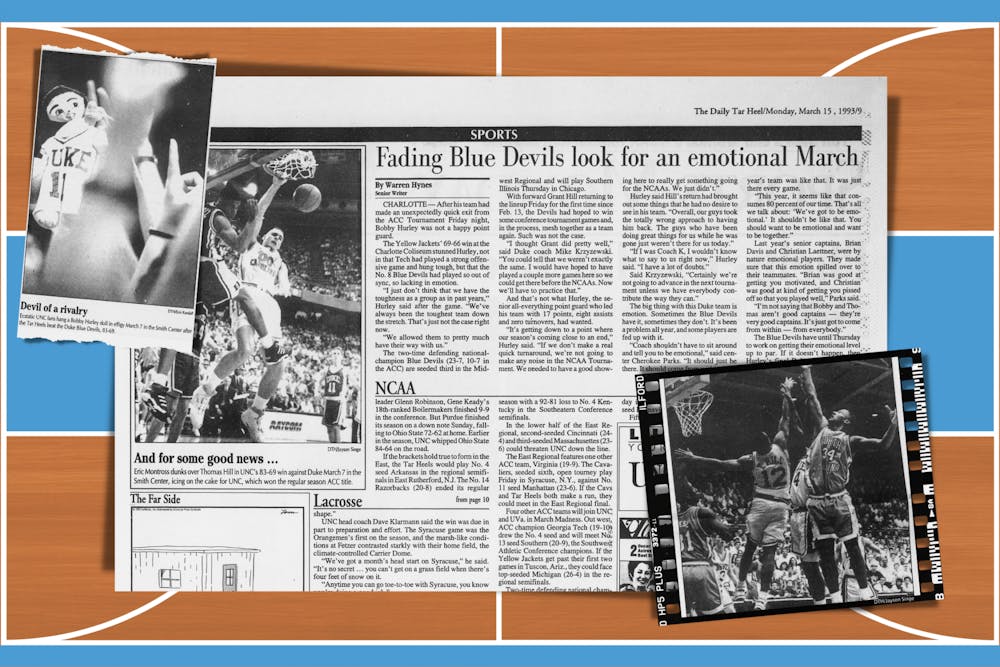Thirty years ago, a line was drawn.
With a seemingly firm grip on the Tobacco Road rivalry following three straight rivalry game wins and back-to-back national titles, Duke arrived to Chapel Hill with the hopes of delivering another blow to the Tar Heels' side. But as North Carolina left the floor in a convincing 83-69 triumph, a new gate had been opened.
Not only did the win give the Tar Heels a boost of momentum, putting the finishing touches on a regular season that eventually led to the program's third national title, it also sparked a string of seven consecutive rivalry victories to give UNC bragging rights it could boast for the rest of the decade.
"It was important for us to take some lumps and bumps throughout the season to refocus on our goals," Eric Montross, a center for the Tar Heels from 1990 to 1994, said. "But it was also important for us to share these victories to prove we were making strides."
With hindsight at their disposal, Montross and former assistant coach Dave Hanners might be the first to admit that despite the outing's billing as a top-10 matchup against an archrival, the contest was no different than the competitive ACC gauntlet the team had faced all year. Rather than worrying about bragging rights, the main priority was staying the course en route to competing for a national championship.
But in the moment, the capacity crowd inside the Dean Smith Center — which even featured a small sect that rushed the floor in a rare rivalry court storming — highlighted a magnitude that existed in that particular moment.
“It feels more intense here than against anybody else,” then-junior guard Derrick Phelps told The New York Times after the game. “It’s a different type of atmosphere when Duke plays here.”
With Duke star Grant Hill sidelined with a toe injury, Phelps played a decisive role in slowing down the Blue Devils’ All-American senior guard Bobby Hurley, who finished with just two makes in 12 attempts. While Phelps' versatile offensive skillset — he finished with eight points, nine rebounds and seven assists — and defensive tenacity helped slow down the Duke's production, another Tar Heel guard flashed signs of what was to come.
Despite coming off the bench for most of the season, sophomore guard Donald Williams lit it up from the perimeter with five 3-pointers to lead all scorers with 27 points. In the national championship game a month later, a game where Chris Webber’s infamous timeout stole the national spotlight, Williams became a Chapel Hill folk hero in his own right after a 25-point performance helped him win the NCAA Tournament Most Outstanding Player Award.



